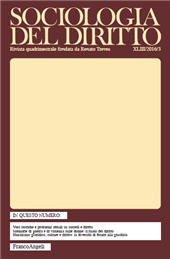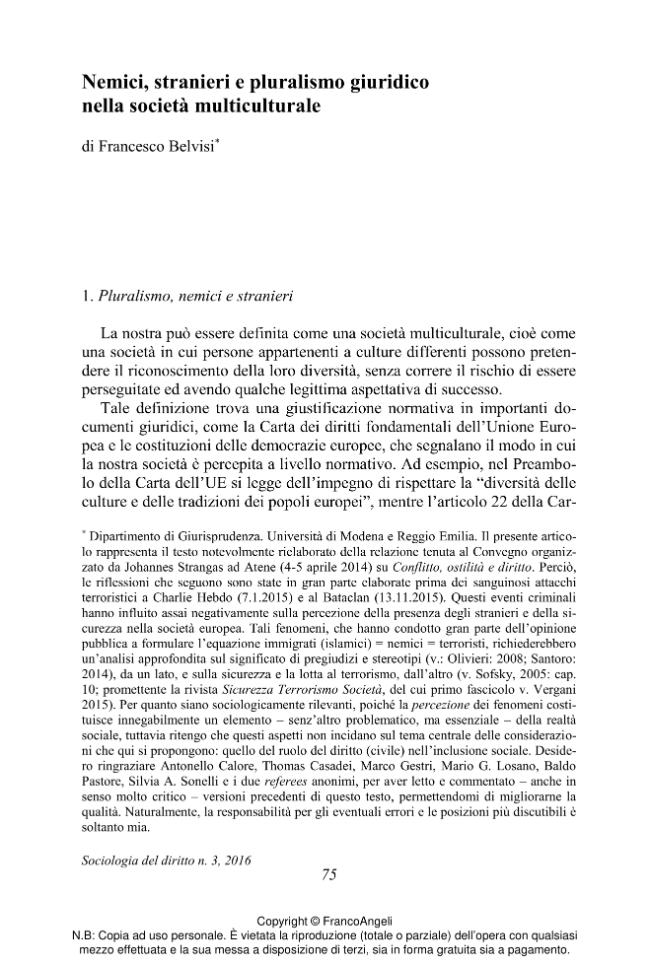Nemici, stranieri e pluralismo giuridico nella società multiculturale
75-99 p.
La nostra può essere definita come una società multiculturale, interessata da massicci fenomeni migratori e dal fatto che i migranti tendono a costituire minoranze etnico-culturali, la cui vita si svolge secondo norme, e valori, che possono essere assai differenti da quelli della società di arrivo. Perciò, nella società multiculturale si manifesta un pluralismo normativo concretamente vissuto, in cui i differenti insiemi di norme pretendono di valere e di essere applicati. In questo contesto, possono sorgere conflitti profondi. Per risolverli, si deve ricorrere a procedure di mediazione, in cui le parti concorrano a produrre regole ad hoc.
Poiché bisogna trattare con eguale considerazione e rispetto le persone portatrici di differenze, nell'amministrare la giustizia si tratta di riconoscere il valore normativo delle istituzioni e delle loro culture e di applicare le regole che le costituiscono, accomodandole in conformità ai princìpi fondamentali della nostra costituzione. [Testo dell'editore].
Our multicultural society is concerned with both massive migrations and the fact that migrants live in ethno-cultural minorities, which are organized according to their norms and values that can be very different from those of the society at large. Thus, in the multicultural society a practiced legal pluralism is at work. In that form of legal pluralism different normative sets claim to be valid and properly applied, to the effect that deep conflicts may arise. In order to face and, possibly, solve them it is suitable to resort to mediation procedures, through which the parties at stake co-operate producing ad hoc rules. In order to not only adequately protect minority people within both the society at large and the migrant communities but also treat them with equal concern and respect, judges have to decide cases with a culture-sensitive attitude.
In doing so, they can recognize the normative value of foreign institutions and apply their constitutive rules by accommodating them according to the fundamental principles of our constitution. [Publisher's Text].
Fa parte di
Sociologia del diritto : 3, 2016-
Articoli dello stesso fascicolo (disponibili singolarmente)
-
Informazioni
Codice DOI: 10.3280/SD2016-003005
ISSN: 1972-5760
MATERIE
PAROLE CHIAVE
- Nemico, Straniero, Pluralismo giuridico, Società multiculturale
- Enemy, Stranger, Legal pluralism, Multicultural society, Culture-sensitive jurisdiction



